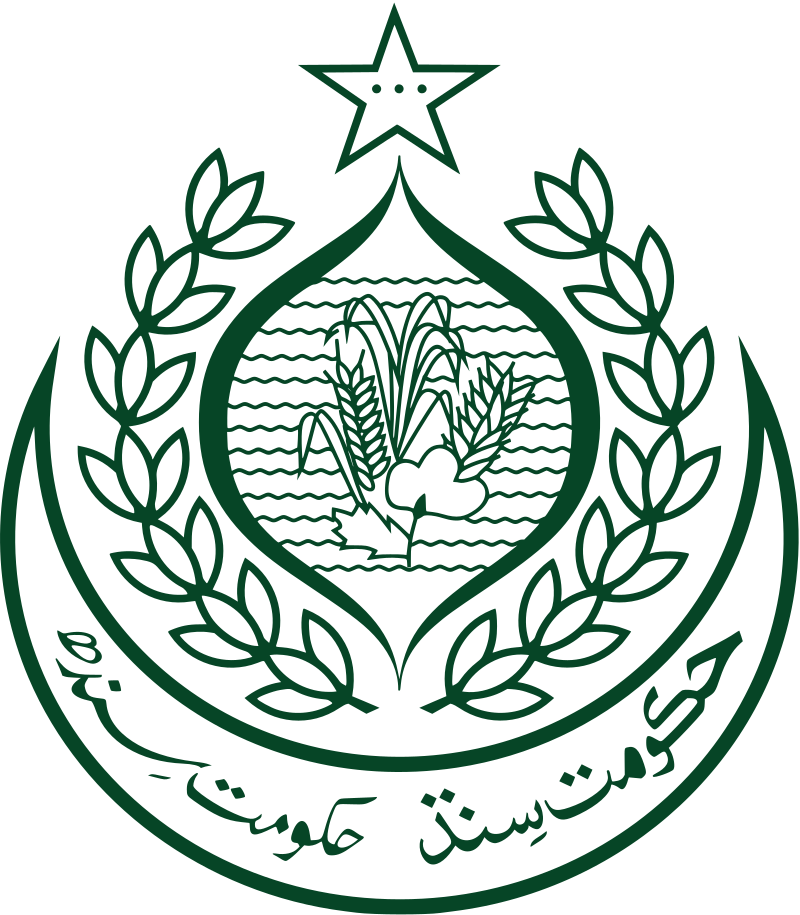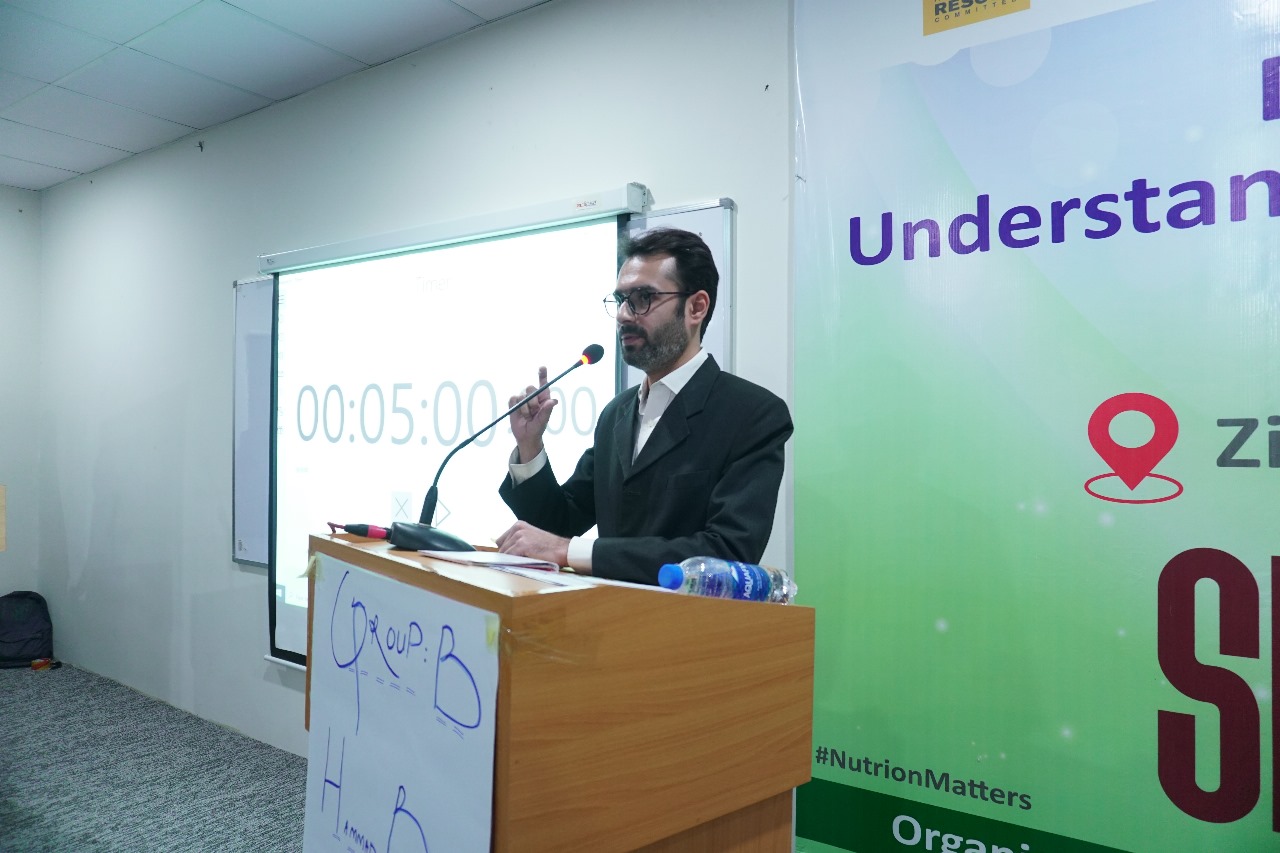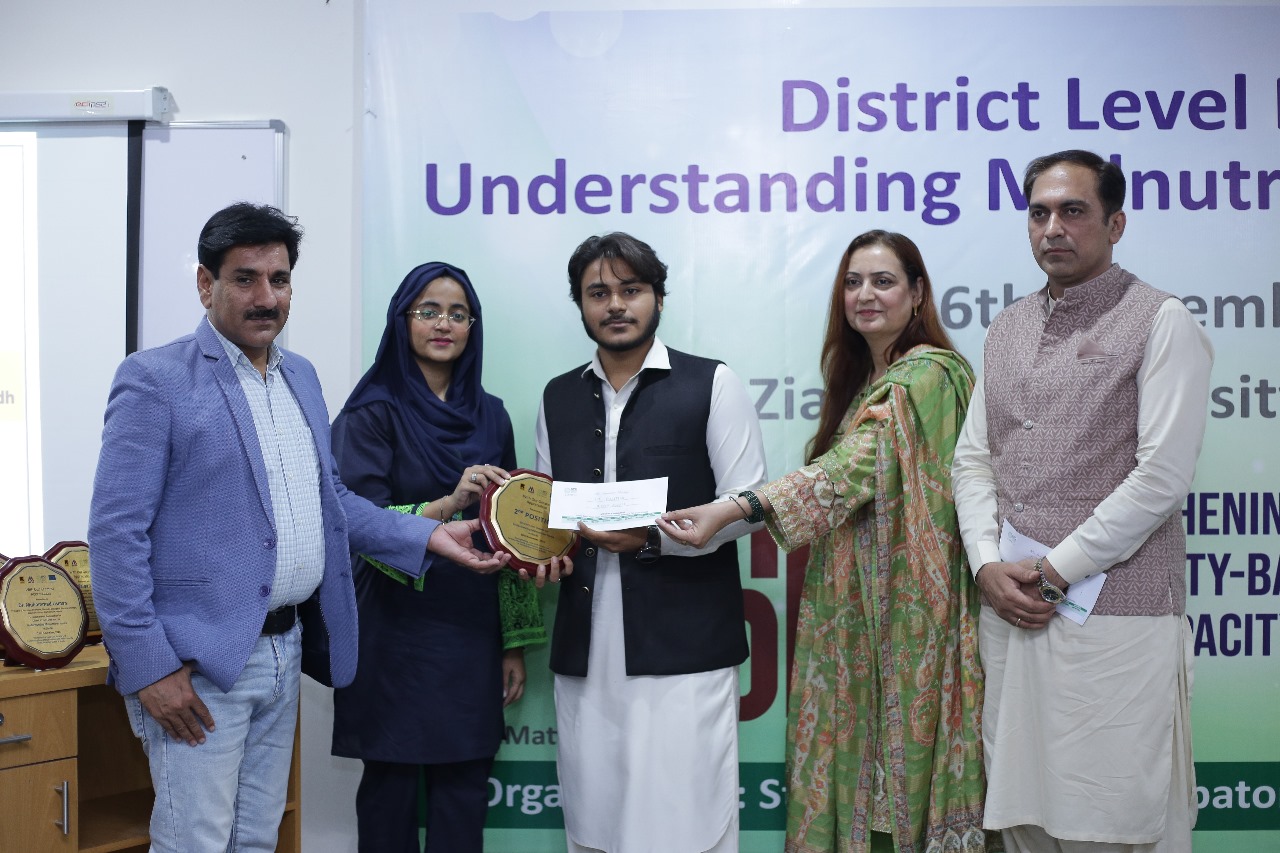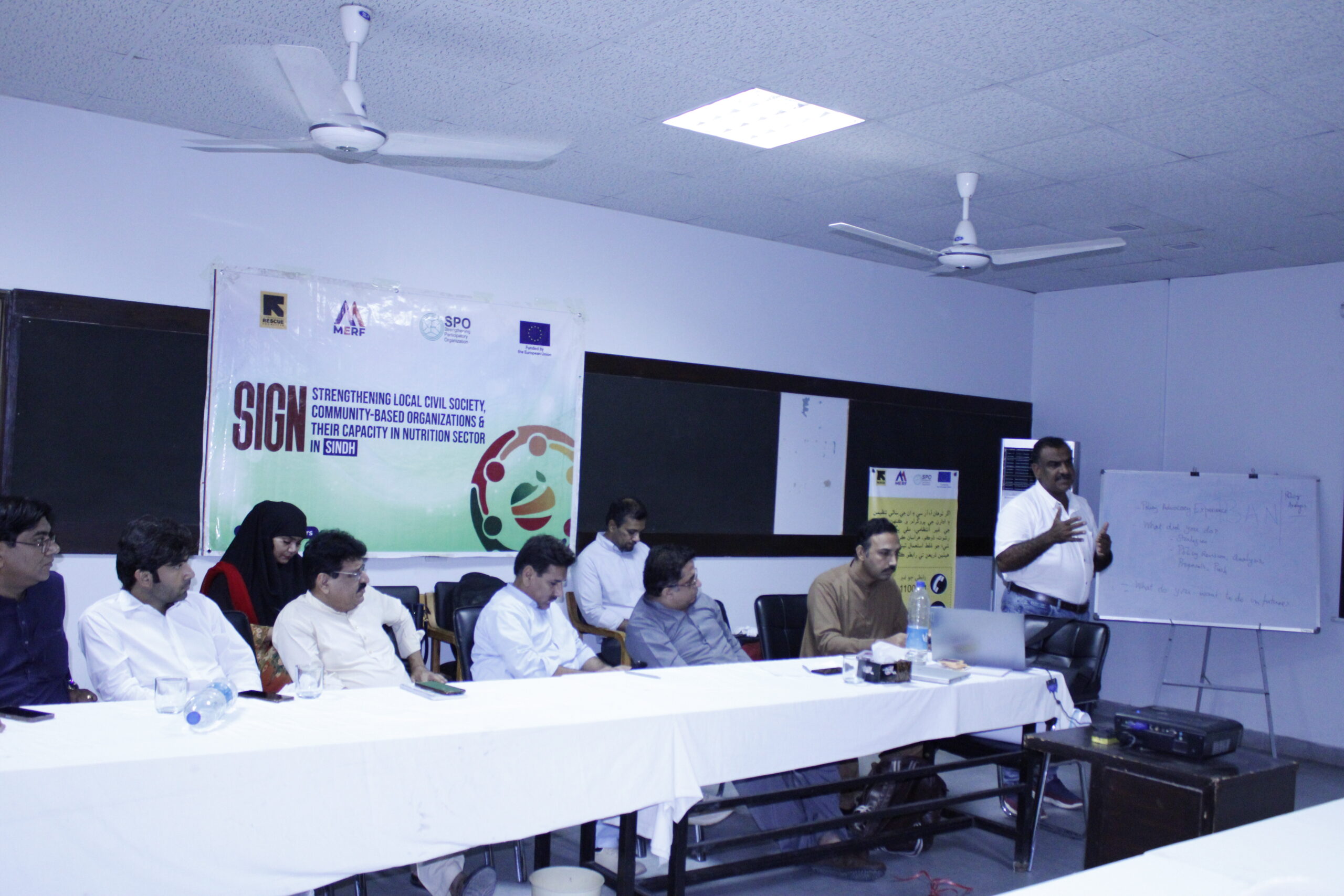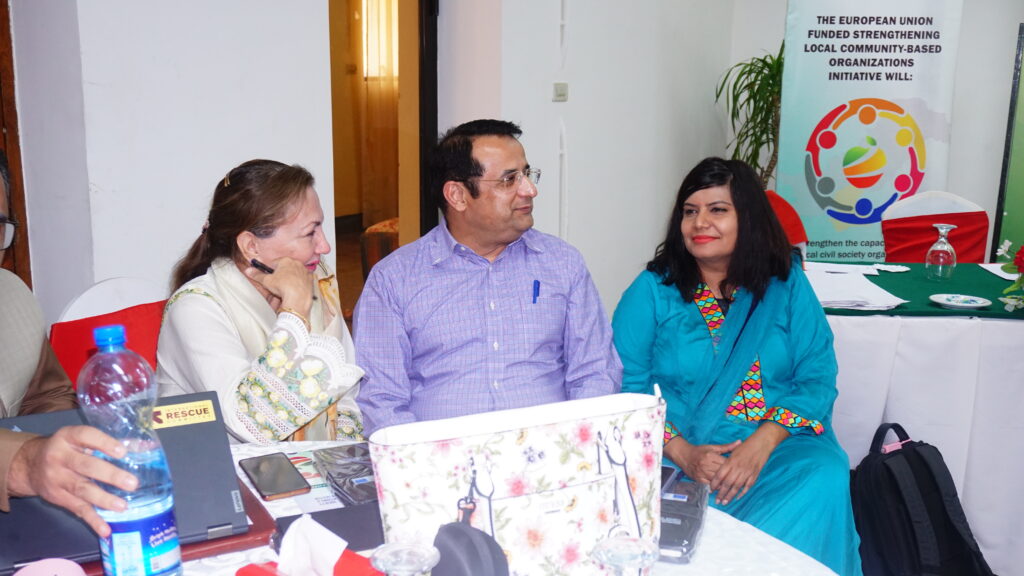
Provincial Conference Addressing Malnutrition Issues in Sindh
Strengthening Participatory Organization (SPO), in collaboration with the International Rescue Committee (IRC) and the Medical Emergency Resilience Foundation (MERF), successfully organized a Provincial Level Conference titled “Addressing Malnutrition Issues in Sindh: Strategies to Strengthen Governance, Policy, and Practices.” The event aimed to explore the challenges of malnutrition in Sindh and present actionable recommendations to strengthen governance, policy frameworks, and service delivery systems in the nutrition sector.
The conference gathered diverse stakeholders, including representatives from government departments such as the Department of Health, Planning and Development Department, Accelerated Action Plan (AAP) Task Force, Sindh Social Protection Authority, and PPHI. Participants also included UN agencies like UNICEF, INGOs, CSOs, and representatives from networks such as the SUN-CSA and Sindh Climate Action Network (SCAN). Discussions emphasized fostering collaboration, addressing policy gaps, and creating a roadmap for future interventions to tackle malnutrition.
Experts provided valuable insights into Sindh’s nutrition landscape. Dr. Sahib Jan Badar, Nutrition Consultant at AAP-TF, stressed the need for stronger policy reinforcement mechanisms to improve nutrition interventions. Dr. Mazhar Iqbal from UNICEF highlighted the critical role of integrating CSOs into the Nutrition Working Group for sustainable impact. Nadeem Mirbarhar from the Planning and Development Department identified the absence of real-time data collection mechanisms as a major barrier and called for evidence-based research and centralized data systems. Dr. DS Akram advocated for subsidies on agricultural inputs for small-scale farmers and stressed the need for unified CSO-led policy advocacy to combat malnutrition in agrarian communities.
In his keynote address, Mr. Hisham Mazhar, Program Coordinator for Nutrition at AAP-TF, identified poverty, fragmented efforts, and ineffective community behaviors as key factors driving malnutrition. He urged the alignment of nutrition stakeholders under a unified framework with AAP-TF to create a coordinated strategy for addressing malnutrition. Dr. Ranomal Loahano, Program Coordinator at IRC, concluded the conference by underscoring the importance of governance, evidence-based research, and multispectral collaboration across health, agriculture, and education sectors as pivotal in combating malnutrition.
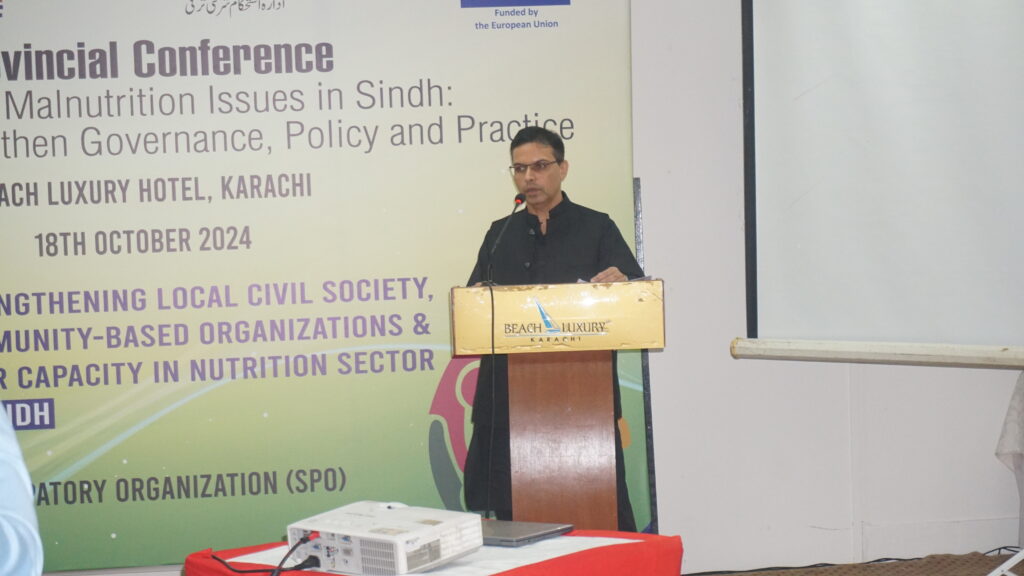
Nutrition Policy Governance Sindh: The systems and structures through which nutrition-related policies are developed, implemented, and monitored in Sindh. This includes the roles of various government agencies, CSOs, and other stakeholders in creating and enforcing effective nutrition policies.
Addressing Malnutrition Sindh: Efforts and strategies focused on combating malnutrition in Sindh, which includes both preventing and treating nutrition-related issues that affect vulnerable populations in the region, such as children and pregnant women.
Provincial Conference on Nutrition: A high-level gathering of stakeholders, including government officials, CSOs, UN agencies, and experts, aimed at discussing and addressing key nutrition challenges, sharing strategies, and coordinating actions to improve nutrition outcomes at the provincial level.
CSO Collaboration for Nutrition: The partnership and joint efforts of Civil Society Organizations (CSOs) to tackle malnutrition through collective advocacy, program implementation, and policy influence to ensure coordinated and comprehensive approaches to nutrition.
AAP-TF Nutrition Strategy: The strategic approach of the Accelerated Action Plan Task Force (AAP-TF) for addressing malnutrition in Sindh, which includes creating a coordinated framework for nutrition interventions, policy development, and stakeholder engagement.
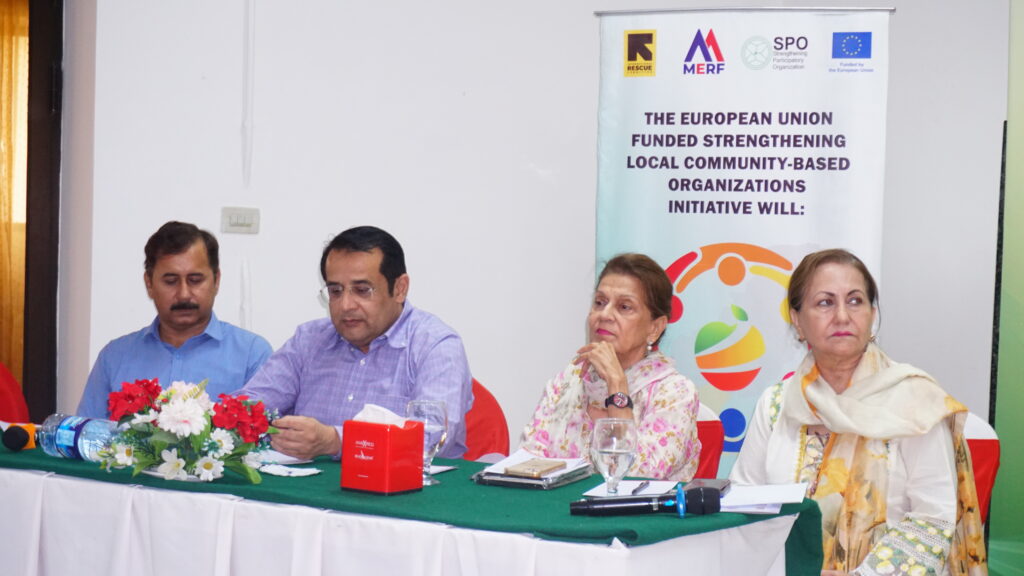
Multispectral Approach to Malnutrition: The integrated approach to addressing malnutrition that involves collaboration across multiple sectors such as health, agriculture, education, social protection, and environment to create comprehensive solutions to malnutrition.
Evidence-Based Nutrition Solutions: The development and implementation of nutrition interventions that are grounded in scientific research and data, ensuring that strategies are effective and can lead to sustainable improvements in nutrition outcomes.
Agriculture and Nutrition Integration: The recognition that agricultural practices and policies directly affect nutritional outcomes, and the need to integrate nutrition-sensitive agricultural interventions to improve food security and nutrition for vulnerable populations.
Health and Nutrition Governance: The systems that ensure effective governance of nutrition and health policies, programs, and services, making sure that resources are efficiently allocated, and that the delivery of nutrition services is equitable, transparent, and accountable.
Sindh Malnutrition Roadmap: A comprehensive plan that outlines the key actions, stakeholders, and strategies required to address malnutrition in Sindh, ensuring a coordinated and long-term approach to improving nutrition in the province.

